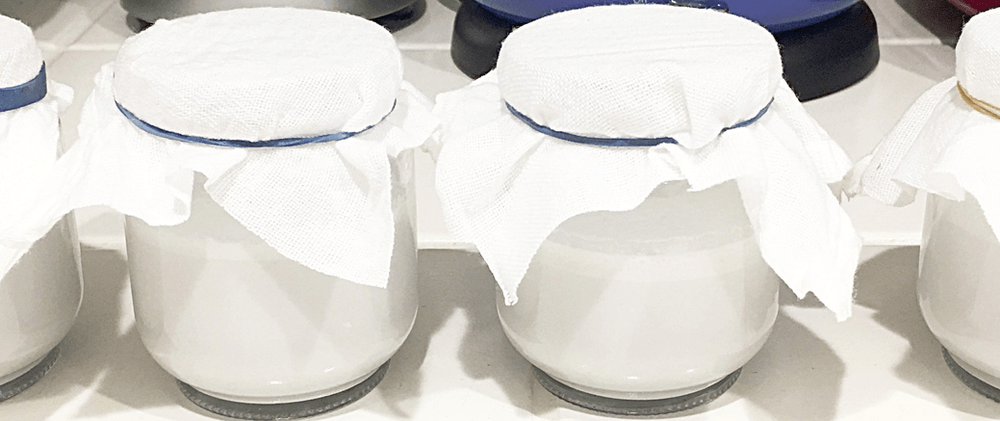Introduction:
As a nutritionist, I firmly believe that achieving optimal health goes beyond merely focusing on “eating pretty well”. It requires understanding the intricate connections between different bodily systems and how they influence one another. One such profound link exists between gut health and mental well-being. In this blog, I will explore the fascinating relationship between our gut and our mental state, and how nurturing our gut health can positively impact our overall mental health. Here is a great article titled: ,Nutritional Psychiatry: your brain on food.

The Gut-Brain Axis:
The gut-brain axis is a bidirectional communication pathway that connects our gastrointestinal system with our brain. It allows for a constant exchange of information and signals between these two vital components of our body. When the state of our gut is compromised, it can significantly affect how we feel physically and emotionally.
Impact of Gut Health on Physical and Mental Well-being:
Our gut plays a crucial role in various physiological processes, including digestion, immune response, and the production of neurochemicals. When our gut is imbalanced, it not only has to perform its regular functions but also undertake significant repair work while being continuously exposed to daily assaults. This imbalance can manifest as physical pain, stomach aches, and discomfort, directly influencing our emotional well-being.
Furthermore, stress, often caused by factors such as anxiety, lack of sleep, pressure, and trauma, can lead to gut irritation. The gut-brain axis is highly sensitive to these stressors, and any disruption in the gut can intensify emotional distress. The unpredictability of physical reactions in the gut can make everyday situations challenging, adding emotional strain to an already compromised state.
Wait, The Gut Produces Neurochemicals?
The gut, often referred to as the “second brain,” is a complex organ that houses millions of neurons and an extensive network of nerves known as the enteric nervous system (ENS). This network communicates bidirectionally with the central nervous system (CNS), which includes the brain and spinal cord, through the gut-brain axis.
One fascinating aspect of the gut’s function is its ability to produce neurochemicals, also known as neurotransmitters. Neurotransmitters are chemical messengers that facilitate communication between neurons and regulate various physiological processes in the body, including mood, cognition, digestion, and even immune function.
Several neurochemicals are produced in the gut, with serotonin being one of the most well-known. Serotonin is a neurotransmitter that influences mood, appetite, sleep, and gastrointestinal activity. Surprisingly, approximately 95% of the body’s serotonin is produced in the gut, specifically by enterochromaffin cells.
The production of serotonin in the gut is closely tied to the presence of beneficial gut bacteria. These bacteria, also known as probiotics, help break down dietary components and produce short-chain fatty acids, which, in turn, stimulate the production of serotonin. Therefore, a healthy gut microbiome, with a diverse and balanced population of beneficial bacteria, is crucial for optimal serotonin production and regulation.
In addition to serotonin, other neurochemicals produced in the gut include gamma-aminobutyric acid (GABA), dopamine, norepinephrine, and acetylcholine. Each of these neurotransmitters plays a unique role in regulating various bodily functions and mental processes. For example, GABA is known for its calming and inhibitory effects on the brain, while dopamine is associated with motivation and reward.
The production of these neurochemicals in the gut is at the forefront of the close connection between gut health and mental well-being. Imbalances in the gut microbiome, such as an overgrowth of harmful bacteria or a lack of diversity, can disrupt the production and regulation of these neurochemicals, potentially leading to mood disorders, cognitive impairments, and gastrointestinal disturbances.

Neurochemicals and Mood Regulation:
Our gut hosts a complex community of microorganisms, including good bacteria. These beneficial bacteria are responsible for producing neurochemicals that play a crucial role in regulating heart rate, breathing, sleep cycles, digestion, mood, concentration, and appetite. Hence, nurturing our gut health becomes imperative in promoting optimal mental well-being.
The Role of Nutrition in Supporting Gut and Mental Health:
As a nutritionist, I firmly advocate for the power of healthy eating habits in promoting gut and mental health. By consuming foods that support gut health, we encourage the growth of beneficial gut bacteria, positively impacting the production of neurotransmitters. A diverse diet rich in plant-based foods provides essential nutrients, vitamins, probiotic and prebiotic rich foods and antioxidants that nourish both our gut and brain. Furthermore, it’s important to consider supplementing daily with a ,quality probiotic. The recent research is showing that we need to continually add probiotics to our gut microbiome.

In addition to plant based foods that provide the above mentioned benefits, protein plays several important roles in supporting gut health. Here are some ways in which protein contributes to a healthy gut:
Tissue Repair: Proteins are essential for the repair and maintenance of the intestinal lining. The cells of the intestinal wall undergo constant renewal, and protein is necessary for the synthesis of new cells and the repair of any damage. Adequate protein intake ensures proper healing and integrity of the gut lining.
Enzyme Production: Many digestive enzymes are proteins that help break down complex nutrients into smaller, more easily absorbable molecules. These enzymes are vital for efficient digestion and nutrient absorption in the gut. Proteins are also involved in the production of enzymes that assist in the breakdown of specific substances.
Immune Function: The gut is home to a significant portion of our immune system, and proteins are crucial for a well-functioning immune response. Antibodies, which are proteins produced by the immune system, help protect the gut from harmful pathogens and maintain a healthy balance of gut bacteria. They play a role in preventing infections and maintaining a strong immune defense in the gut.
Satiety and Blood Sugar Regulation: Protein can help stabilize blood sugar levels, preventing rapid spikes and crashes that can negatively impact gut health.
When aiming to support gut health, it is essential to consume a variety of protein sources. This includes lean meats, poultry, fish, legumes, nuts, seeds, and dairy products. Plant-based proteins, such as legumes and quinoa, also provide dietary fiber, which further supports gut health.

Tips for Supporting Gut Health and Mental Well-being:
Mindful Eating: Practice mindful eating by paying attention to the sensations, flavors, and textures of your food. Chew slowly and savor each bite. This allows for better digestion and absorption of nutrients, promoting a healthier gut. Chewing to a liquid consistency, allows the digestive enzymes in your mouth to do their job in the initial stage of digestion, sending food on so the rest of the gut can function properly at every stage.
Increase Fiber Intake: Incorporate a variety of fiber-rich foods into your diet, such as fruits, vegetables, whole grains, and legumes. Fiber helps nourish the good bacteria in your gut and promotes regular bowel movements, maintaining a healthy digestive system.
Probiotics and Fermented Foods: Include probiotic-rich foods like yogurt, kefir, sauerkraut, and kimchi in your diet. These foods contain beneficial bacteria that support a healthy gut microbiome. It’s also important to supplement with a ,quality probiotic. ,Here is more on fermented foods and mental health.
Hydration: Stay hydrated by drinking an adequate amount of water throughout the day. Sufficient hydration promotes proper digestion and helps maintain the balance of beneficial bacteria in the gut.
Reduce Processed Foods: Minimize your intake of processed and refined foods, as they can disrupt the gut microbiome and contribute to inflammation. Opt for whole, unprocessed foods whenever possible.
Manage Stress: Implement stress-management techniques such as deep breathing exercises, meditation, yoga, or engaging in hobbies that bring you joy. Also consider spending time in nature, practicing relaxation techniques or journaling. Chronic stress can negatively impact gut health, so finding healthy ways to manage stress is crucial.
Regular Physical Activity: Engage in regular physical activity to support both your gut and mental health. Exercise helps regulate digestion, reduces stress, and boosts mood-enhancing endorphins.
Prioritize Sleep: Establish a consistent sleep routine, aiming for 7-8 hours of quality sleep each night. A lack of sleep can disrupt the gut microbiome and contribute to mood disturbances.
Seek Support: If you’re experiencing gut-related or mental health concerns, don’t hesitate to seek support from a healthcare professional, such as a nutritionist, gastroenterologist, or mental health practitioner. They can provide personalized guidance and interventions tailored to your specific needs.
By incorporating these tips into your daily routine, you can take proactive steps toward nurturing both your gut health and mental well-being. Remember, small changes over time can lead to significant improvements in your overall health and quality of life.

Conclusion:
The link between gut health and mental well-being is undeniable. Our gut plays a vital role in various physiological processes and influences our emotional state through the production of neurochemicals. Nurturing our gut health through healthy nutrition habits and a supportive lifestyle is a powerful tool in combating the risk of mood disorders. By prioritizing the health of our gut, we can establish effective communication between our stomach and brain, positively impacting our mood, cognition, and overall mental well-being.
As a nutritionist, I urge you to embrace the transformative potential of a well-nourished gut and its profound impact on mental health.
Further Reading: ,The Brain Gut Connection


